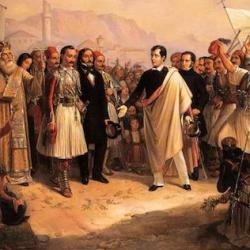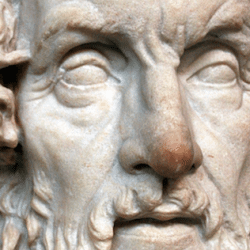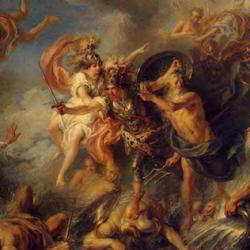The idea of Odysseus as a hero of mind or thought has an ancient pedigree. The Pythagoreans interpreted Odysseus as a thinking man who passed through the underworld on a path of denial of the flesh and escape from the eternal round of reincarnation.
Proclus wrote, “Many are the wanderings and circlings of the soul: one among imaginings, one in opinions and one before these in understanding. But only the life according to nous has stability and this is the mystical harbor of the soul to which, on the one hand, the poem leads Odysseus through the great wandering of his life, and to which we too shall draw ourselves up, if we would reach salvation.” (The harbor of soul is Odysseus’ inland journey after his return to Ithaca.)
That doesn’t get the genius of the Odyssey, the great humanist epic that begins with the word andra and tells the story of the hero’s progress toward humanity in this world. There is no transfiguration. His road leads home toward wife, father, family, kingdom, and, ultimately, death. It is the deepest wisdom, and the broadest humanity possible – in a world without resurrection.











